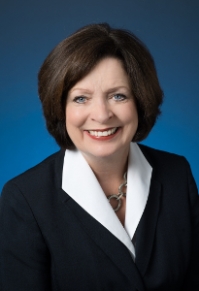State sees little progress in uninsured rate for minority groups
by Bryan Thompson, KHI News Service
A recent national report credits the Affordable Care Act, or Obamacare, for helping to reduce racial and ethnic inequalities in health insurance coverage. But Kansas has not made as much progress as other states.
Before the Affordable Care Act, blacks, Hispanics, American Indians and Asian-Americans were much more likely than whites to be uninsured. But an analysis by the nonprofit Center for Global Policy Solutions shows that gap has narrowed because of the health reform law.
Ocie Corner is one example. The African-American woman lives in Bel Aire, a suburb on the northeast side of Wichita, and had been uninsured since 2012. She said she just kept her fingers crossed.
“You just hope you don’t get sick and have to go someplace, because you don’t … you really don’t know where to go. You really don’t,” she said. “You just kind of, ‘Well, it’ll work out. It’ll work out.’ And, you know, sometimes it don’t work out.”
Corner wasn’t aware of the federal insurance marketplace that became available in 2014. But a few weeks before Christmas, she saw a message on TV about the penalty people have to pay if they don’t have health insurance.
“I wasn’t paying no $600, so it got me to sign up,” said Corner.
And it’s a good thing she did. Corner went to HealthCore Clinic in Wichita a couple of weeks later for treatment of a burn that wasn’t healing. They referred her to specialty care, which Corner says she couldn’t afford to pay for on her own.
While her burn was being evaluated, she learned that her blood pressure was too high and causing damage to her eyes. Her insurance will help her pay for the care she needs.
But that peace of mind continues to elude a disproportional share of minority Kansans. A recent analysis by the Kansas Health Institute found that 17.4 percent of black Kansans were uninsured in 2014, compared to 7.6 percent of white Kansans. That’s a larger gap than in any other state. Nationwide, 13.6 percent of black Americans were uninsured in 2014, significantly lower than the rate in Kansas.
Teresa Lovelady heads HealthCore Clinic, a federally funded safety net clinic in a predominantly African-American neighborhood in northeast Wichita. She said 88 percent of the clinic’s patients live at or below the federal poverty level.
“These are individuals that will not qualify for the insurance marketplace,” Lovelady said.
By that, she means they don’t make enough money to qualify for federal subsidies to help cover the cost of their insurance premiums.
The ACA extended Medicaid to adults with incomes up to 138 percent of the federal poverty level. But Gov. Sam Brownback and legislative leaders have blocked efforts to make more low-income adults eligible for KanCare, the state’s privatized Medicaid program.
Lovelady thinks that’s the main reason for the racial disparity in insurance coverage. And she says those left without insurance are hard-working Kansans.
“Their income was too low to meet the federal threshold, but they were too rich to qualify for Medicaid in the state of Kansas,” she said. “And because we did not expand Medicaid in Kansas, it disproportionately impacted the patients that we serve here at HealthCore.”
While the disparity between whites and blacks was higher in Kansas than in any other state, the largest uninsured gap in Kansas was between whites, at 7.6 percent, and Hispanics, at 24.2 percent. That’s more than a threefold difference.
KanCare doesn’t cover non-disabled, childless adults no matter how poor they are. Brownback and many Republican legislative leaders say the state shouldn’t extend coverage to them while Kansans with disabilities remain on waiting lists even though those waiting lists are for disability support services, not medical care.
There is mounting evidence showing that states that have not expanded Medicaid are lagging when it comes to reducing the uninsured rate and narrowing racial and ethnic gaps in coverage.
As the KHI analysis summarized, the average decrease in the uninsured rate for states that expanded Medicaid was 25.6 percent. In states like Kansas that did not expand Medicaid, the uninsured rate declined by an average of 13.8 percent.
The Center for Global Policy Solutions report, meanwhile, concludes that eliminating the disparities in coverage between minorities and whites will not happen unless government coverage, like Medicaid or Medicare, is extensively expanded.
Editor’s note: The Kansas Health Institute is the parent organization of the editorially independent KHI News Service.
The nonprofit KHI News Service is an editorially independent initiative of the Kansas Health Institute and a partner in the Heartland Health Monitor reporting collaboration. All stories and photos may be republished at no cost with proper attribution and a link back to KHI.org when a story is reposted online.
– See more at http://www.khi.org/news/article/despite-obamacare-insurance-disparities-persist-in-kansas#sthash.Ay0yJuL5.dpuf

